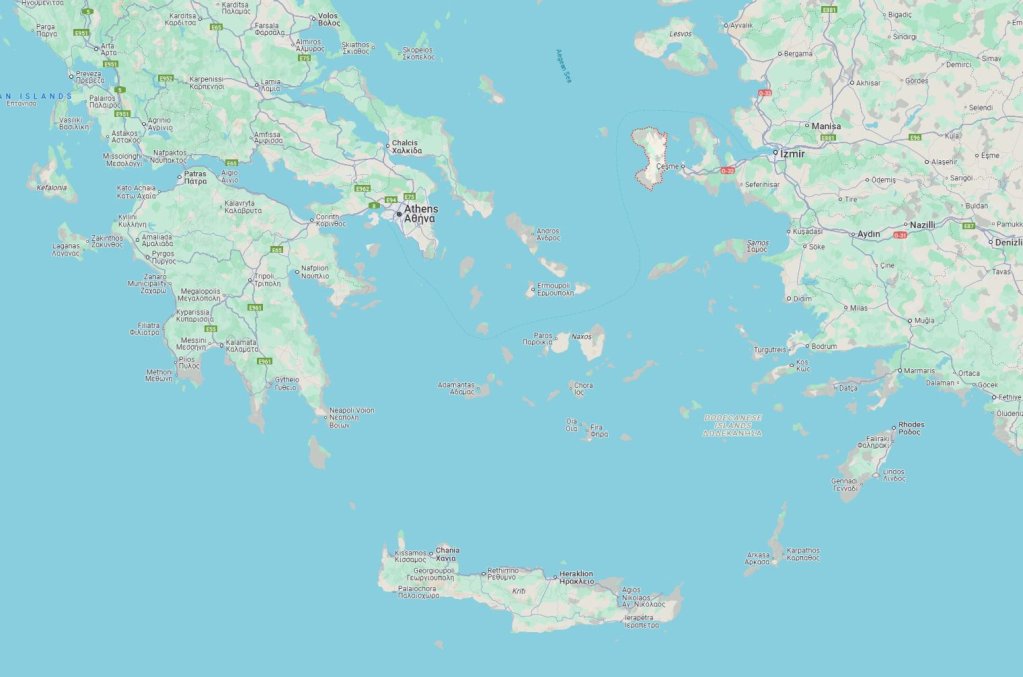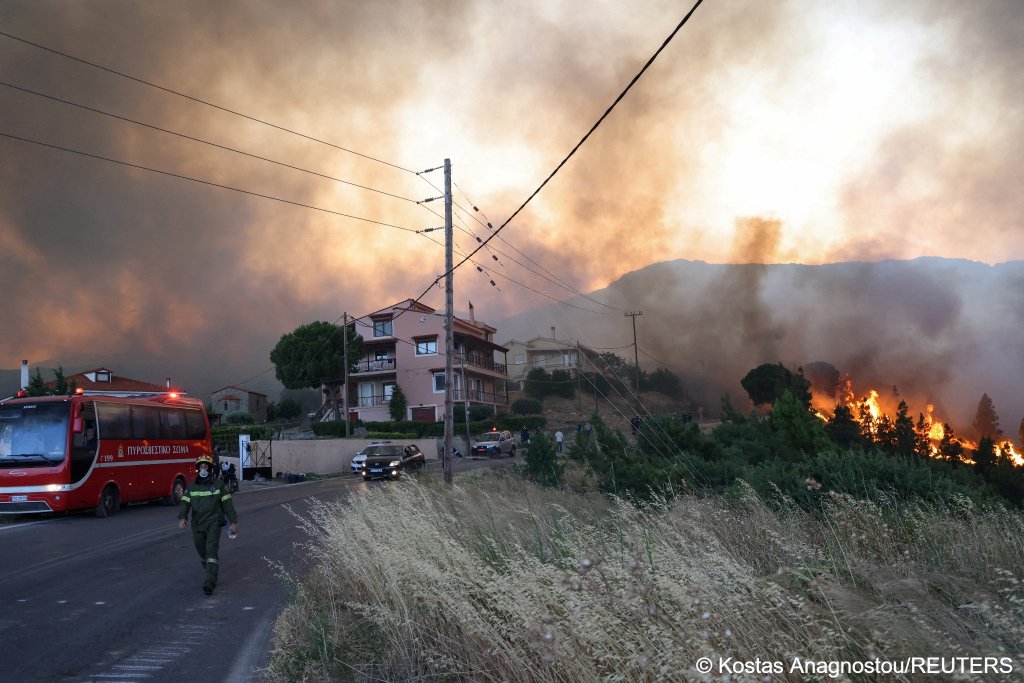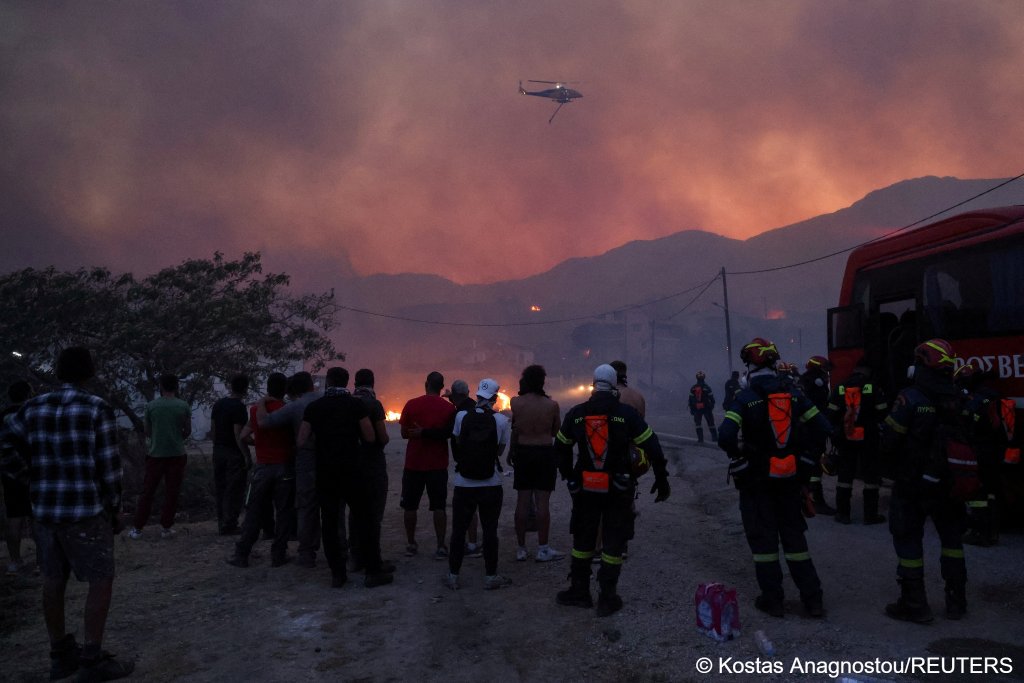Fires have forced officials to evacuate hundreds of asylum seekers from a reception camp on the Greek island of Chios, the Greek migration ministry said.
A large reception and registration camp for migrants on the Greek Aegean Island of Chios was evacuated on Sunday (June 22) due to large forest fires.
According to news agency AFP, citing information from the Greek migration ministry, a total of 629 asylum seekers were brought to safety and will remain in a sports hall for as long as necessary.
The Ministry for Climate Crisis and Civil Protection reportedly said that more than a dozen nearby villages were also emptied as a precaution.
According to AFP and Greek public radio station ERT, about 100 firefighters, 30 fire engines, ten helicopters and four airplanes were involved in the effort to extinguish and control the flames.
By Sunday afternoon, units from Athens reportedly arrived on Chios to support local crews as strong winds fanned the fire.
ERT also reported that 16 villages had to be evacuated due to heavy smoke.
Read AlsoGreece: Two women dead in apparent migrant shipwreck
Fewer migrant arrivals
The camp the asylum seekers were evacuated from is officially called the Closed Controlled Access Center (CCAC). Opened in 2016 as a response to the large number of migrant arrivals via Turkey, the facility was previously known as the Vial Reception and Identification Centre (RIC).
Chios, Greece's fifth-largest island, is a frequent landing point for migrants trying to reach Europe. Of all 14,600 irregular migrant arrivals by sea to Greece so far this year (UNHCR data as of June 15), 1,282 arrived on Chios.
Some parts of Chios, which is home to some 50,000 people, are less than ten kilometers away from the Turkish mainland.

While the vast majority of sea arrivals were registered in Chios, Lesbos, Samos and the other Greek islands in the Aegean Sea since 2015, the arrivals -- and with it, the islands' migrant population -- have dropped significantly over the past few years.
At the same time, arrivals to the much bigger southern Greek island of Crete from North Africa have seen a sharp increase in recent months -- 5,700 sea arrivals to Crete have been registered so far this year, more than all Aegean Islands, including Chios combined.
Suspected arson, ongoing wildfire danger
ERT reported that the fire brigade and police experts are investigating the causes of the fires and are suspecting arson. According to reports, fires broke out at three locations on Chios within a few minutes.
Nationwide, around 50 wildfires were counted over the weekend, the news agency AFP reported, citing the fire service. The service also reportedly warned that danger levels would remain "very high" through Monday.
According to dpa, citing Greece's national weather service, the smoke was so thick that it could be seen from satellites.
Greece is very prone to wildfires because of its dry, windy summers and warmer temperatures caused by climate change, scientists say.
With AFP, dpa


